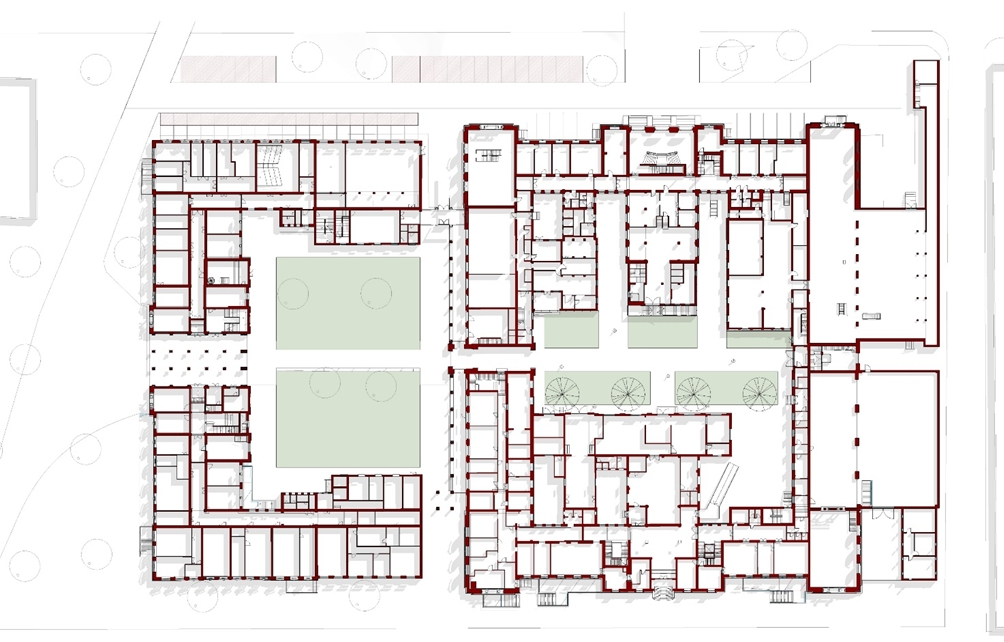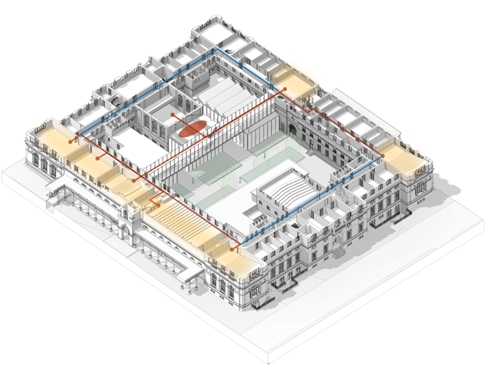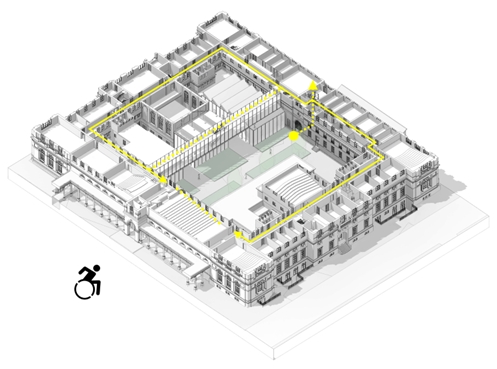Projects in the year 2023:
In general, the points of action A3.1 (installations for the LIVEABILITY AND USABILITY of classrooms and SENSOR INTEGRATION – IoT) and the points of action A3.2 (interventions for MULTIFUNCTIONAL AREAS: setting up green areas, spaces for PhD students and Visiting Scientists) were started within a broader project on the optimization of the internal and external spaces of the Department’s historic headquarters. The activity was conducted by carrying out a census of all the spaces of the department and in particular the classrooms, laboratories and internal and external relational spaces. The main problem that we tried to answer was how to define a strategy for the redevelopment and set up of the spaces compatible with the characteristics of the department’s buildings that are affected by monumental and landscape protection constraints. We therefore opted for a gradual implementation of the program, defined on the basis of the level of authorization required for each type of intervention. In this way the implementation of the program was divided into four phases:
Phase 1: Implementation of interventions that can be completed without requesting a prior opinion from the competent superintendencies.
Phase 2: Development of a feasibility study relating to interventions subject to prior authorisation and formulation of the authorisation request.
Phase 3: Implementation of interventions subject to prior approval and immediately feasible.
Phase 4: Implementation of interventions subject to prior opinion and complex to implement. Feasibility.
Phase 1: Action A3.1 has been started regarding the electrical energy distribution and wiring system; in particular, the wiring of classroom N in the Department’s historic headquarters using University resources has been completed. The classrooms that will be the subject of this type of intervention starting from 2024 have also been identified: classrooms M, L, IP, Multipurpose Room, P28.
At the same time, the design of action A3.1 was brought forward with particular reference to the improvement of the lighting of some classrooms, carrying out a market survey relating to lighting comfort control systems.
The video-conference system envisaged by the Project as a setup for PhD and Visiting spaces (point of action A3.2) was acquired in 2023, using resources from the ICEA co-financing of the SEI ICEA Project. The spaces inside the department that currently lack a specific function were also identified and can be redeveloped by creating infrastructures to be dedicated to PhD students and visiting scientists.
Furthermore, the design of the Department’s green areas (action point A3.2) has been included in a Visiting scientist project (action A2.3) planned for 2024. The visiting scientist is involved in various teaching activities of the Master of Science in Building Engineering-Architecture courses, in particular in the Workshop of Architectural and Urban design and Architecture of Living courses, where the design of prototypes of furnishing devices capable of stimulating and developing relationships between groups has been developed for years, and in the History of Architecture 1 course and in the Drawing Laboratory connected to the Architecture of Living Course. Within the collaboration, in particular, multifunctional areas are studied and created, such as wooden prototypes to be certified later, by groups of ICEA students to create welcoming and innovative multifunctional meeting places, suitable for encouraging exchanges, moments of relaxation, study and informal meetings.
Phase 2: the feasibility study was developed which allowed us to determine the areas of intervention and the following related priorities:
Phase 3 interventions:
- A3.2 arrangement of internal courtyards and redevelopment of green areas;

- A3.1 Installation of high-performance multipurpose units for air conditioning of classrooms.

Phase 4 interventions:
- A3.2 adaptation of spaces from the point of view of accessibility and creation of new relational spaces within the Department.


